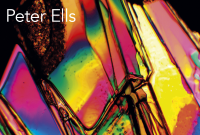
A recent thread on the CI author forum raised a question about a topic which pops up frequently - the topic of copyright.
And the questions which come up most frequently are:
- When can I quote without needing to ask permission?
- And how much can I quote without asking permission?
These are questions I've had to address with authors, and my answer is generally, do the right thing - get permission.
- But what about 'fair use'?
'Fair use' or 'Fair dealing' are loosely defined terms which allow for the reproduction of a work within copyright for the purposes of review or criticism.
That means that if you want to slate an author's work - or praise it - you don't need to depend on their permission. You can say what you like about it - and back up your opinions with quotes. They might get you for libel or slander if you've gone too personal, or made unsubstantiated claims, but they can't get you for breach of copyright.
As long as your work is for review or criticism.
Journalism aside, if the work is for commercial gain then that's another matter - you may be providing an opinion or criticising an author's work, but if you're doing so to make money, then they could argue you're trading on their success and infringing on their rights. Better get rights clearance.
Even if you believe your intended use comes under 'fair use' or 'fair dealing', you may face a law suit if the rights holder doesn't think so - and the rights holder may well not be the author. It could be the author's estate, or a publisher. The rights holders may feel it is their duty to protect the rights they have been granted. Best to check with them.
To be fair, in most of the instances in which I've asked for permission to use material, the rights have been granted graciously and without much hassle. Photographs are one area where reproduction fees have been required. In one instance permission was refused. It was in a book on communication and I wanted to cite an advert as a negative example - to make the point, I needed to quote 100% of the text. Permission wasn't granted, and I decided I could make the point another way, so I left the example out.
The most time-consuming part of seeking permission is finding out who to contact.
The resources I've found most useful are
WATCH - The Writers, Artists & Their Copyright Holders website (USA).
WATCH - The Writers, Artists & Their Copyright Holders website (UK).
ALCS - The Authors’ Licensing & Collecting Society.
Further information about copyright and permission can be found on the UK Society of Authors' website. In particular, take a look at their Guide to Copyright and Moral Rights and Guide to Permissions.
See also the section on Copyright in the Collective Ink User Manual.
In short, stay on the right side of copyright.
Categories:
0 comments on this article







